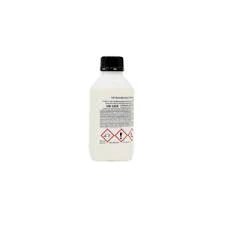types of flocculants in water treatment
Types of Flocculants in Water Treatment
Water treatment is an essential process that ensures clean and safe water for various uses, including drinking, irrigation, and industrial applications. Among the critical processes involved in water treatment is flocculation, where flocculants play a pivotal role. Flocculants are substances that promote the clumping of particles into larger aggregates (or flocs), making it easier to remove them during sedimentation or filtration. There are several types of flocculants used in water treatment, each with distinct properties, applications, and advantages.
1. Natural Flocculants
Natural flocculants are derived from plant and animal sources and have gained popularity due to their environmentally friendly characteristics. Common examples include starches, guar gum, and chitosan. Starches are polysaccharides widely used for their nontoxic nature and effectiveness in coagulating suspended particles in water. Guar gum, obtained from the seeds of the guar plant, is another natural polymer that enhances floc formation through its viscosity-altering properties. Chitosan, extracted from chitin found in crustacean shells, is effective in removing contaminants and is biodegradable, which makes it a favorable choice for sustainable practices.
Synthetic flocculants are man-made polymers that offer a range of molecular weights and charges, which can be manipulated to optimize flocculation processes. They are generally categorized into cationic, anionic, and non-ionic flocculants based on their charge. Cationic flocculants, like polyacrylamide, have a positive charge that attracts negatively charged particles, leading to effective aggregation. Anionic flocculants, also like polyacrylamide but with a negative charge, are particularly useful in treating wastewater with positively charged impurities. Non-ionic flocculants do not carry any charge and can be beneficial in neutral pH conditions. The versatility and effectiveness of synthetic flocculants often make them the preferred choice in various industrial applications.
types of flocculants in water treatment

3. Inorganic Flocculants
Inorganic flocculants, such as aluminum sulfate (alum) and ferric chloride, are chemical compounds that play a crucial role in water treatment. Alum has been widely used for decades due to its affordability and efficiency in coagulating suspended solids and removing turbidity. It works by neutralizing the charges on particles, allowing them to aggregate. Ferric chloride is another effective inorganic coagulant that works similarly but provides additional benefits in treating specific types of water, particularly those with high organic matter content.
4. Bioflocculants
Bioflocculants are another emerging category that has gained traction in recent years. These are natural flocculants produced by microorganisms, including bacteria and fungi. They offer the advantage of being biodegradable and sustainable, minimizing environmental impact. Bioflocculants can be particularly effective in treating industrial wastewater and have shown promise in enhancing the efficiency of existing water treatment processes.
In conclusion, the choice of flocculant in water treatment depends on various factors, including the type of contaminants present, water chemistry, and specific application requirements. As environmental concerns rise, there is a growing trend towards using natural and bioflocculants, alongside synthetic and inorganic options, to ensure sustainable water treatment solutions. Understanding the characteristics and benefits of each type of flocculant is crucial for optimizing water treatment processes and achieving effective results.
-
lk-319-special-scale-and-corrosion-inhibitor-for-steel-plants-advanced-solutions-for-industrial-water-systemsNewsAug.22,2025
-
flocculant-water-treatment-essential-chemical-solutions-for-purification-processesNewsAug.22,2025
-
isothiazolinones-versatile-microbial-control-agents-for-industrial-and-consumer-applicationsNewsAug.22,2025
-
scale-inhibitor-key-solutions-for-water-system-scale-preventionNewsAug.22,2025
-
organophosphonates-versatile-scale-inhibitors-for-industrial-water-systemsNewsAug.22,2025
-
scale-and-corrosion-inhibitor-essential-chemical-solutions-for-water-system-maintenanceNewsAug.22,2025





